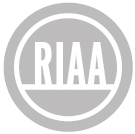 The Recording Industry Association of America (RIAA) has become most known amongst consumers as being the trade organization that seeks out and sues sharers of music owned by the media companies it represents. Up until recently, the RIAA was staying on top of its pursuit of P2P pirated until they were handed some unfavorable situations or decisions. Most people sued by the RIAA opt to avoid going to court and settle with the trade group for a few thousand dollars.
The Recording Industry Association of America (RIAA) has become most known amongst consumers as being the trade organization that seeks out and sues sharers of music owned by the media companies it represents. Up until recently, the RIAA was staying on top of its pursuit of P2P pirated until they were handed some unfavorable situations or decisions. Most people sued by the RIAA opt to avoid going to court and settle with the trade group for a few thousand dollars.
We reported recently about Tanya Andersen's demand and receipt of attorneys fees after the RIAA dropped a file sharing case against her after two years. Judge Donald Ashmanskas said that the RIAA was unable to obtain, or chose not to produce significant usable evidence against the defendant. He commented that the case was unjustified as a reasonable exploration of the boundaries of copyright law as the RIAA seeks to avoid any major decisions on any significant issues.
He commented that if the trade group is allowed to continue with this process, "members of the public would be more hesitant to use the Internet to share creative works in general, regardless of whether their specific conduct violated copyright law or occupied an area yet to be addressed by copyright law."
Source:
Inquirer
He commented that if the trade group is allowed to continue with this process, "members of the public would be more hesitant to use the Internet to share creative works in general, regardless of whether their specific conduct violated copyright law or occupied an area yet to be addressed by copyright law."
Source:
Inquirer












